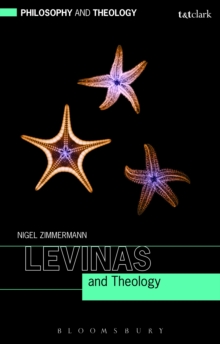
Hardback
Description
Depoortere traces the links between French philosopher Alain Badiou and Pauline theology in the face of Nietzsche's proclamation of the death of God.
The French philosopher Alain Badiou (born 1937), is one of the main representatives of a philosophical homage to Saint Paul.
Yet, Badiou is not a believer in the traditional sense, let alone a Christian philosopher.
On the contrary, he rejects transcendence and pleads for a radical this-worldliness.
The text is segmented into five parts. In Depootere's introduction, Badiou's interpretation of Nietzsche's proclamation of the death of God is presented.
The life and work of Badiou is then briefly outlined to give some context to later passages.
This is followed by two sections on Badiou's relationship to Pauline theology and a conclusion which posits the question of An Atheistic Political Theology.
Here, Badiou's atheistic reading of Saint Paul is unpicked and demonstrated as a fruitful addition to theological study.
Depootere's focus is on Badiou's "Saint Paul: La fondation de l'universalisme" (1998; translated into English in 2003 as "Saint Paul: The Foundation of Universalism"). Through a close reading of this important work, the main themes of Badiou's philosophy are introduced and their theological relevance examined. "The Philosophy and Theology" series looks at major philosophers and explores their relevance to theological thought as well as the response of theology.
Information
-
Out of stock
- Format:Hardback
- Pages:168 pages
- Publisher:Bloomsbury Publishing PLC
- Publication Date:17/09/2009
- Category:
- ISBN:9780567032614
Information
-
Out of stock
- Format:Hardback
- Pages:168 pages
- Publisher:Bloomsbury Publishing PLC
- Publication Date:17/09/2009
- Category:
- ISBN:9780567032614










